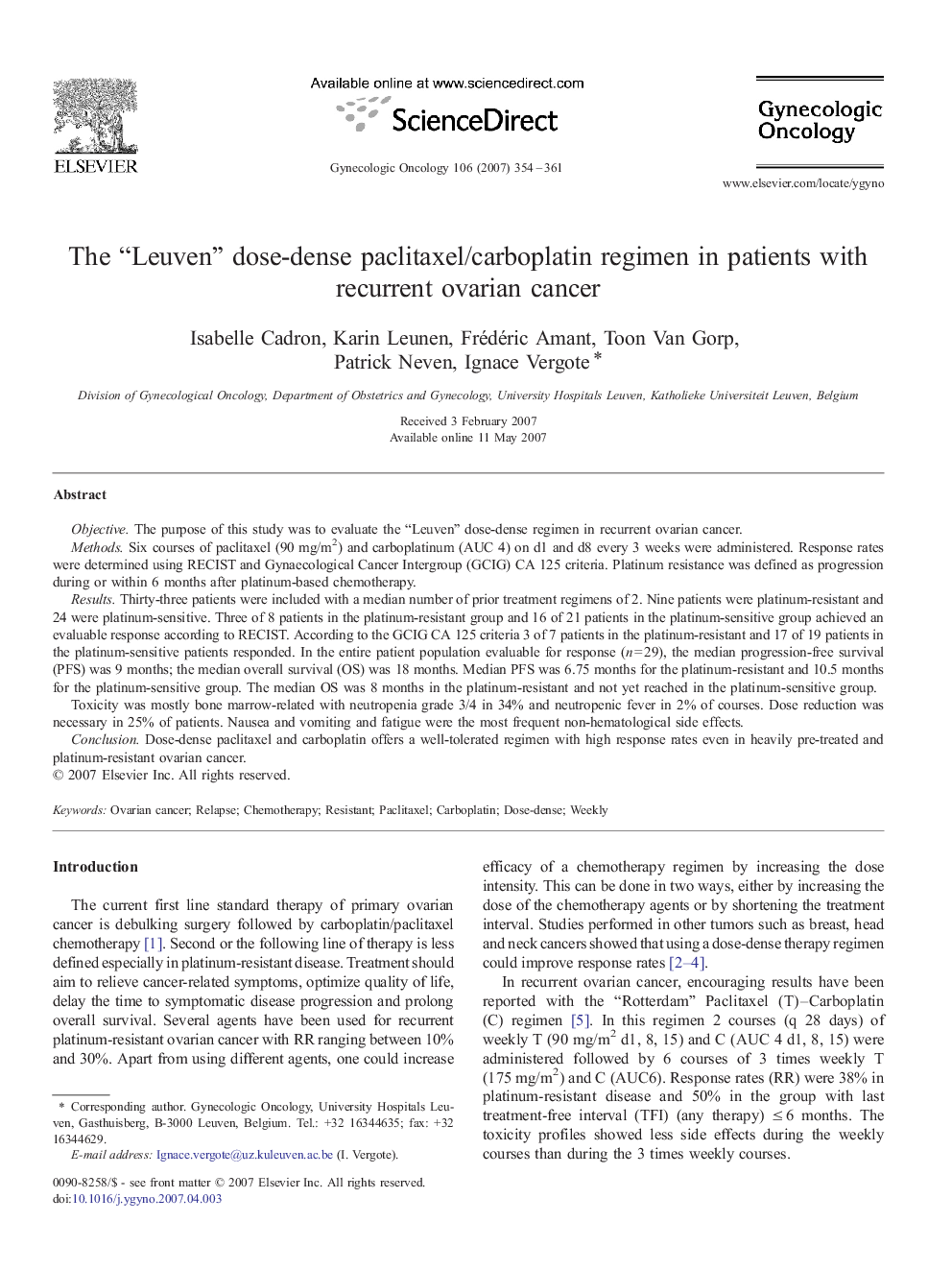| Article ID | Journal | Published Year | Pages | File Type |
|---|---|---|---|---|
| 3946433 | Gynecologic Oncology | 2007 | 8 Pages |
Objective.The purpose of this study was to evaluate the “Leuven” dose-dense regimen in recurrent ovarian cancer.Methods.Six courses of paclitaxel (90 mg/m2) and carboplatinum (AUC 4) on d1 and d8 every 3 weeks were administered. Response rates were determined using RECIST and Gynaecological Cancer Intergroup (GCIG) CA 125 criteria. Platinum resistance was defined as progression during or within 6 months after platinum-based chemotherapy.Results.Thirty-three patients were included with a median number of prior treatment regimens of 2. Nine patients were platinum-resistant and 24 were platinum-sensitive. Three of 8 patients in the platinum-resistant group and 16 of 21 patients in the platinum-sensitive group achieved an evaluable response according to RECIST. According to the GCIG CA 125 criteria 3 of 7 patients in the platinum-resistant and 17 of 19 patients in the platinum-sensitive patients responded. In the entire patient population evaluable for response (n = 29), the median progression-free survival (PFS) was 9 months; the median overall survival (OS) was 18 months. Median PFS was 6.75 months for the platinum-resistant and 10.5 months for the platinum-sensitive group. The median OS was 8 months in the platinum-resistant and not yet reached in the platinum-sensitive group.Toxicity was mostly bone marrow-related with neutropenia grade 3/4 in 34% and neutropenic fever in 2% of courses. Dose reduction was necessary in 25% of patients. Nausea and vomiting and fatigue were the most frequent non-hematological side effects.Conclusion.Dose-dense paclitaxel and carboplatin offers a well-tolerated regimen with high response rates even in heavily pre-treated and platinum-resistant ovarian cancer.
